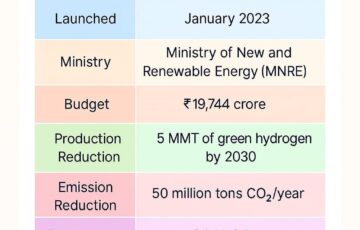ASYMMETRIC FEDERALISM
What is Asymmetric Federalism?
- Asymmetric federalism is a governance model where regions within a federal state enjoy varying degrees of autonomy, deviating from a uniform distribution of powers.
- It accommodates diverse needs, granting specific states or regions unique provisions or privileges, reflecting flexibility in the distribution of authority within the federal structure.
Quasi-Federal Governance:
- India’s governance structure is quasi-federal, striking a balance between unitary and federal setups.
- In a federal structure, states have varying degrees of autonomy and legislative powers.
Seventh Schedule of the Constitution:
- The Constitution’s Seventh Schedule outlines Union, State, and Concurrent lists prescribing subjects for legislation.
- In the Concurrent list, both the Centre and states can legislate, with Union law prevailing in case of conflicts.
Asymmetric Federalism and Special Status:
- Asymmetric federalism exists in India, where not all states have equal status.
- Special status, while necessary for India’s diverse states, face criticism for potentially fostering regionalism and separatism.
Examples of Asymmetric Federalism:
- Article 370, which formalized Jammu and Kashmir’s relationship with India, is a notable example.
- Nine states, including Nagaland and Mizoram, have special provisions under Article 371A-l, granting negotiated autonomy.
- Delhi, despite not being a state, has unique powers outlined in Article 239AA for administering the national capital.
Temporary, Transitional, and Special Provisions:
- Special provisions for states, despite being termed “temporary,” lack explicit expiry dates.
- For states like Nagaland and Mizoram, the negotiated autonomy remains protected under these provisions.
Supreme Court’s Interpretation:
- In the case of Jammu and Kashmir, the Supreme Court ruled that Article 370 represents asymmetric federalism but doesn’t imply internal sovereignty.
- The court emphasized the political and constitutional concessions made to states for reasons beyond political necessities.
Delhi’s Unique Arrangement:
- Delhi, not classified as a state, has a distinct administrative arrangement outlined in Article 239AA.
- Despite its unique status,it possesses legislative powers over subjects in both the state and concurrent lists, showcasing an exception in India’s federal structure.




